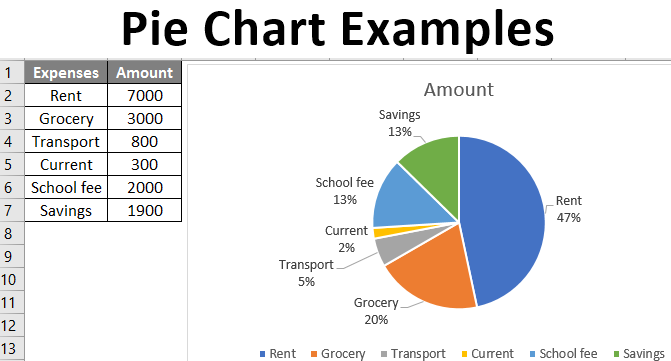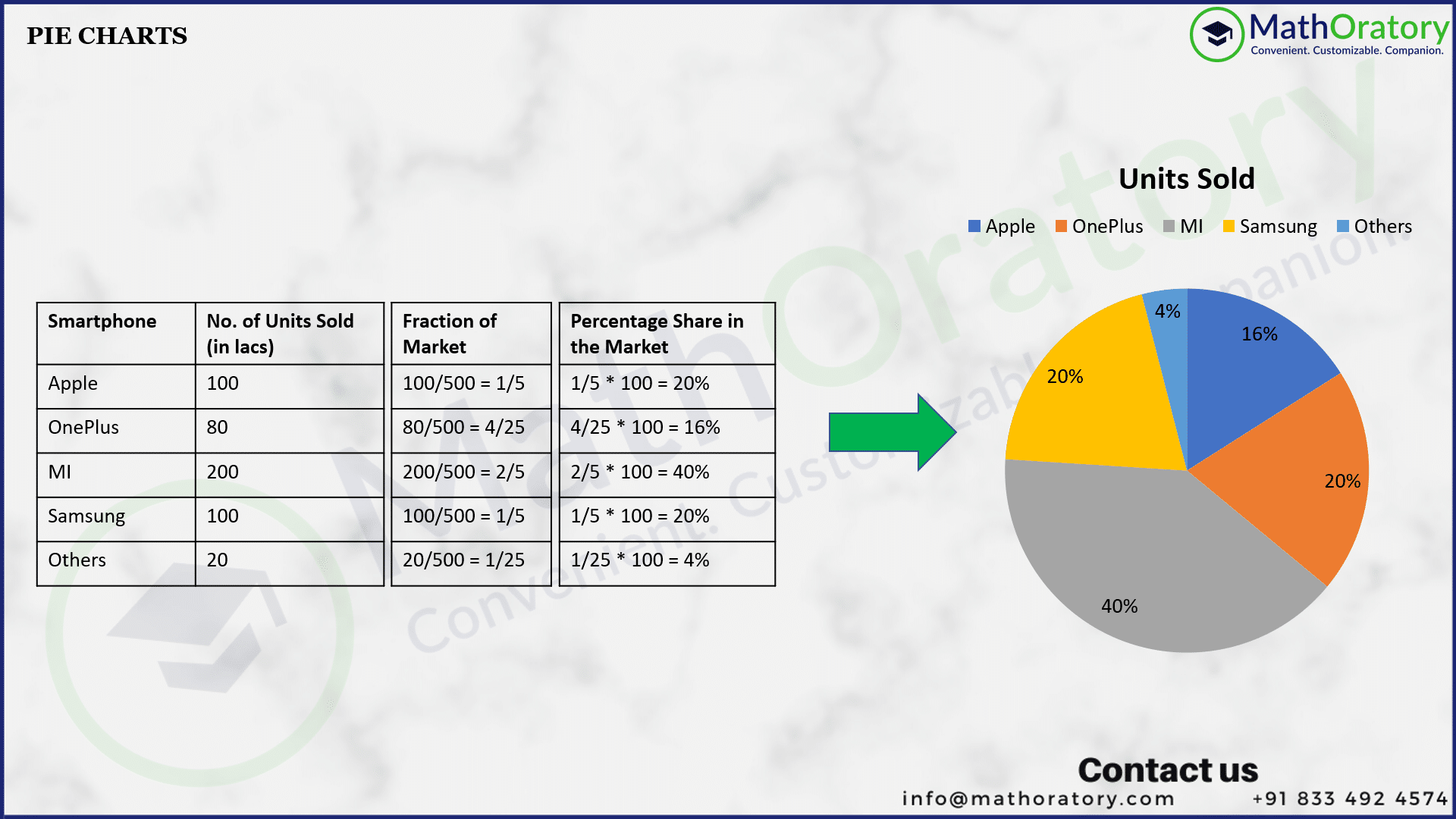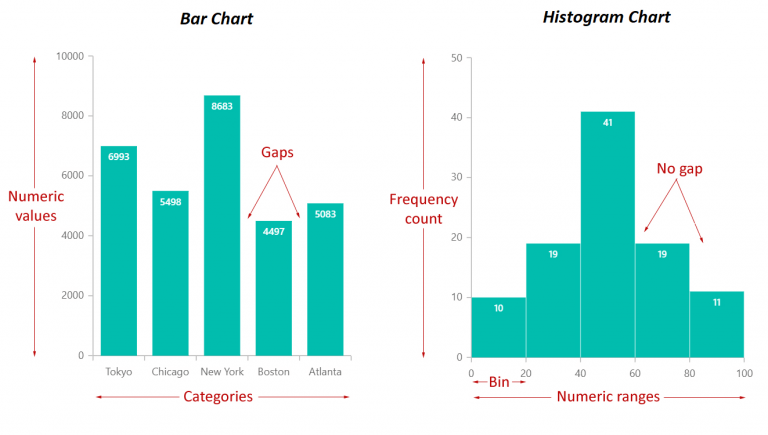Pie chart
Table of Contents
Table of Contents
If you’re looking for a way to visually represent data, a pie chart can be a great option. Pie charts are a type of graph that show how much each piece of data contributes to the whole. Not only are they visually appealing, they can also help make complex data easier to understand. In this post, we’ll go over some examples of pie charts with explanation to help you understand how they work and how they can be used.
Pain Points Related to Pie Chart Examples With Explanation
Have you ever found yourself struggling to make sense of a large dataset? Or have you ever had to explain complex ideas to someone who isn’t familiar with the subject matter? Pie charts can be a great tool for both of these situations, but not everyone knows how to read or make them. Without the right guidance, pie charts can be confusing or even misleading.
Answer to the Target of Pie Chart Examples With Explanation
Pie charts are a type of graph that can be used to show how much each piece of data contributes to the whole. They are circular in shape and divided into sections that represent different categories or values. The size of each section is proportional to its value relative to the whole. Pie charts are useful for comparing parts of a whole, as well as for showing changes over time.
Summary of the Article’s Main Points Related to Pie Chart Examples With Explanation
In summary, pie charts are a type of graph used to visually represent data. They are circular in shape and divided into sections proportional to their value relative to the whole. Pie charts are useful for comparing parts of a whole and showing changes over time. However, it’s important to use them correctly to avoid confusion or inaccuracies.
Types of Pie Charts
There are several types of pie charts that can be used depending on the data you want to represent. A basic pie chart is a simple circle with sections that represent data values. However, you can also use exploded pie charts, where one or more sections are separated from the others to represent a smaller value. Another type is the three-dimensional pie chart, which adds depth to the chart to make it more visually appealing. A variation of the pie chart is the donut chart, which is similar in shape but has a hole or empty space in the center.
 Examples of Pie Charts in Business
Examples of Pie Charts in Business
One example of a business application of a pie chart is budget allocation. You can use a pie chart to compare how much of your budget is dedicated to different expenses, like payroll, rent, and supplies. Another example is market share. You can use a pie chart to show how much of the market is controlled by different companies or brands. This can help you identify potential opportunities or threats by seeing how you compare to your competitors.
 ### How to Create a Pie Chart
### How to Create a Pie Chart
To create a pie chart, you will need to have data that is broken up into categories or percentages. You can create a pie chart manually using a compass, protractor, and ruler, or you can use software like Microsoft Excel or Google Sheets to create a digital chart. Simply input your data values and the software will generate a pie chart for you automatically.
 #### Common Mistakes to Avoid with Pie Charts
#### Common Mistakes to Avoid with Pie Charts
When creating and reading pie charts, there are some common mistakes to be aware of. One mistake is using too many sections in the chart, which can make it difficult to read and understand. Another mistake is not labeling the sections or providing enough context for the data. It’s also important to ensure that the sections are proportional to their value relative to the whole, or the chart can be misleading.
 Question and Answer
Question and Answer
Q: Are pie charts useful for comparing data over time?
A: Pie charts are best suited for comparing parts of a whole, and may not be the best choice for comparing data over time. However, you can use a stacked bar chart or line graph to show changes in data over time.
Q: How can I ensure that my pie chart is accurate?
A: To ensure that your pie chart is accurate, make sure that the sections are proportional to their value relative to the whole. Use a data table to double-check your calculations and include labels and context to make the data easier to understand.
Q: Can I use a pie chart to compare more than one dataset?
A: No, pie charts are best used for comparing parts of a whole within one dataset. If you want to compare multiple datasets, you may want to consider using a different type of graph, like a bar chart or stacked bar chart.
Q: Can I use different colors and patterns in my pie chart?
A: Yes, you can use different colors and patterns to help differentiate between the sections in your pie chart. However, make sure that the colors and patterns don’t clash or make the chart difficult to read.
Conclusion of Pie Chart Examples With Explanation
Pie charts can be a powerful tool for visually representing data, but only when used correctly. By understanding the basics of pie charts and common mistakes to avoid, you can create accurate and effective charts that help communicate your data. Whether you’re using a pie chart for business or personal purposes, it’s important to choose the right type of chart for your data and provide enough context to make the chart easy to understand.
Gallery
Pie Chart - Examples, Formula, Definition, Making

Photo Credit by: bing.com / pie represents ingredients
Full Basics Of Pie Charts - Relationship With Ratios And Percentages

Photo Credit by: bing.com / pie charts chart basics values percentage percentages observe able first ratios represent
Writing About A Pie Chart | LearnEnglish Teens | British Council

Photo Credit by: bing.com / pie chart writing ielts skills english sample tips describe essay describing examples bar learnenglishteens britishcouncil task words council answer language
Pie Chart Examples | LaptrinhX

Photo Credit by: bing.com /
Pie Chart - Examples, Formula, Definition, Making

Photo Credit by: bing.com / examples percentage






